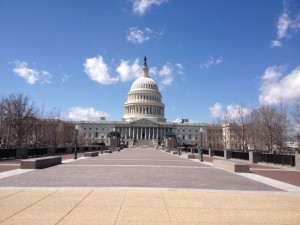Good news! The House and Senate approved a 1-year renewal of the Special Diabetes Program at the current level of 300 million dollars: 150 million dollars goes towards Type 1 diabetes medical research through the National Institutes of Health (NIH), and 150 million dollars goes towards Type 2 diabetes prevention and treatment programs for American Indian and Alaska Native populations. The Special Diabetes Program (SDP) was set to expire in September, 2014.
The SDP fully funded the study, PERL: Trial of Allopurinol To Preserve Kidney Function in People with Type 1 Diabetes. This study would not have happened otherwise, with no profit motivation to study an inexpensive drug like allopurinol, as explained at the SDP Progress Report presentation during JDRF government days.
Other SDP breakthroughs include identifying 50 genes associated with Type 1 diabetes (versus 3 known genes associated with Type 1 in 1998), identifying immune therapies that have halted Type 1 diabetes disease progression for over 1 year, artificial pancreas trials now taking place on an outpatient trial basis, and the finding that diabetic retinopathy can be reversed!
Another SDP funded study, the DCCT/EDIC is a 30-year study with 95% of the research subjects still participating. The study has shown that 6.5 years of blood sugar control can decrease kidney disease by 50%. This decrease in kidney disease translates into a projected savings of over 14 billion dollars in 10 years to Medicare from the reduction of end-stage renal disease (ESRD) and a savings of over 126 billion dollars to Medicare in 25 years.
You can read more about the Special Diabetes Program in my previous post: JDRF Government Days.
Note the sequestration caused the Special Diabetes Program to be cut by 5.1%, which resulted in an almost 20 million loss to the program over 2013 and 2014.
This important renewal allows SDP-funded medical research to continue, and ideally a 5-year renewal will be obtained in the future, so that numerous clinical trials will have the chance to deliver on results that will lead to better treatments for Type 1, prevention of Type 1, and ultimately a cure for Type 1 diabetes.
Now you can quickly and easily email your thanks to your senators here and your congress members here.



